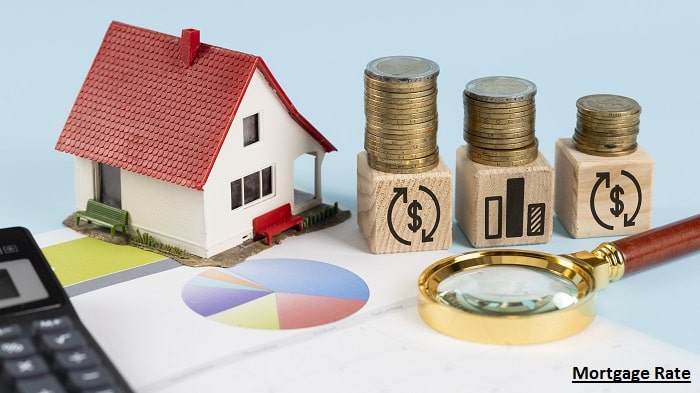Mortgage rates refer to the interest rates that lenders charge for providing a mortgage loan to borrowers. The rate can vary depending on a variety of factors, including the type of mortgage, the borrower's credit score and financial history, the size of the down payment, and current market conditions.
Mortgage rates are typically expressed as an annual percentage rate (APR), which represents the total cost of borrowing over the life of the loan. The APR includes both the interest rate and any additional fees or charges associated with the mortgage.
Mortgage rates can fluctuate over time, depending on changes in the economy and the housing market. It's important for borrowers to stay informed about current mortgage rates and to shop around to find the best deal on a mortgage loan. Borrowers can typically find current mortgage rates online or by consulting with a mortgage lender or broker.
 |
| Mortgage |
Why the home mortgage rate is high?
There are several factors that can contribute to high home mortgage rates, including:
The economy:
Mortgage rates are often influenced by the state of the economy. When the economy is strong and there is high demand for borrowing money, mortgage rates tend to be higher.
Inflation:
Inflation is the rate at which prices for goods and services increase over time. Higher inflation rates can lead to higher mortgage rates.
Risk factors:
Lenders consider a variety of risk factors when setting mortgage rates, including the borrower's credit score, income, and down payment amount. Borrowers who are deemed higher risk may be charged higher mortgage rates to offset the lender's risk.
Market conditions:
Mortgage rates are also influenced by market conditions, such as supply and demand for mortgage loans, and fluctuations in the bond market.
Government policies:
Government policies and regulations can also impact mortgage rates. For example, the Federal Reserve's monetary policies can influence the interest rates that lenders charge for mortgage loans.
It's important to remember that mortgage rates can vary widely depending on the lender and the borrower's individual circumstances. It's a good idea to shop around and compare rates from multiple lenders to find the best deal on a mortgage loan. Here is a link to calculate the mortgage rate.
Mortgage Rate in the United States.
Mortgage rates in the United States can vary depending on a variety of factors, including the type of mortgage, the lender, the borrower's credit score and financial history, and current market conditions. However, as of my knowledge cutoff date of September 2021, the average interest rate for a 30-year fixed-rate mortgage in the US was around 2.86%, according to Freddie Mac's Primary Mortgage Market Survey. This was a historically low rate, driven by the economic impact of the COVID-19 pandemic and the Federal Reserve's monetary policy.
It's important to note that mortgage rates can fluctuate over time, and borrowers should keep an eye on current market conditions and compare rates from multiple lenders to find the best deal on a mortgage loan. Additionally, mortgage rates can vary by state and even by region within a state, so borrowers should consult with a local lender or broker to get a more accurate picture of current rates in their area.